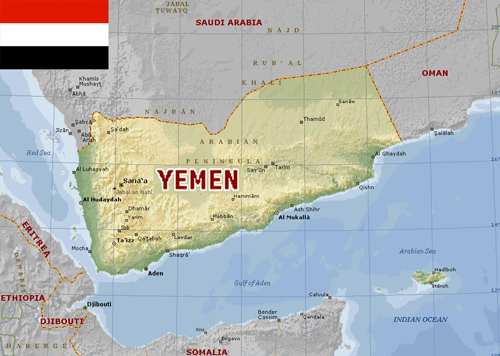On the sidelines of the 27th session of the UN Human Rights Council, on 25 September, the Cairo Institute for Human Rights Studies (CIHRS), in conjunction with the Danish Institute for Human Rights (DIHR) and the Yemeni Network for Human Rights (YNHW), presented an oral intervention calling on the Yemeni government to “to immediately and unconditionally appoint members to the national commission of inquiry created more than a year ago in order to investigate human rights violations in the context of protests within the country.”
During its oral intervention, CIHRS noted that “accountability for past and ongoing human rights violations and ensuring justice for victims of these violations is the only way to ensure lasting stability in Yemen.” It also called on the government of Yemen to “take immediate steps to ensure the creation of a fully functioning and independent National Human Rights Institution.”
In addition, the CIHRS, in coordination with the Danish Institute for Human Rights (DIHR) held a side event on the state of human rights in Yemen titled: “Yemen: Impunity results in instability.” Convened on September 12, the side event included presentations by Dr. Abdullah Abdulqader, Chairman of the Yemeni Human Rights Network; Mr. Abdul Raham Albusibli, General Secretary of the Southern Observatory for Human Rights; Gamal Alshami, Member of the Yemeni Human Rights Network. The discussion was chaired by Ashraf Mikhail, Country Program Manager, Danish Institute for Human Rights.
The participants of the side event agreed that Yemen suffers poor human rights conditions, and noted the grave violations that have been the result of competing Yemeni militias and factions, the heavy influence of militias and interest groups linked with the old regime, the absence of accountability, and ongoing policies that foster impunity.
Abdullah Abdulqader argued that weapon possession and extrajudicial killing are deeply rooted practices among warring factions in Yemen. He believes the solution lay in the disarmament of all factions and in an agreement on a unified national strategy. He noted that all efforts to bring warring parties in Yemen to the negotiating table have thus far been unsuccessful.
Abdulqader called for the formation of an international committee to investigate alleged crimes against humanity in Yemen, stressing the committee’s international nature. He hoped that HRC resolutions issued in the current session would include items on this issue and he referred to the importance of establishing human rights institutions in Yemen.
Abdul Raham Albusibli, urged the Yemeni government to ratify the protocol for the International Criminal Court. Albusibli ruled out any progress in the country’s current situation given that all warring parties are armed and have no qualms about bypassing democratic processes and deploying weapons to gain power. Albusibli condemned the government’s establishment of ostensible human rights instruments as a deceptive front, noting that the chair of the government’s National Human Rights Council is also the head of the intelligence apparatus.
Gamal Alshami, discussed violations of children’s rights in Yemen. He argued that the most serious violation of children’s rights in the country is the use of child soldiers by militias and the regular army. Despite the difficulties of accessing military barracks and units in Yemen, Alshami noted that the UN had managed to document 85 cases of the military recruitment of children. If the UN was permitted to enter such locations, the numbers would undoubtedly be double that, he said.
At the conclusion of the seminar Ashraf Mikhail, summarized the state of human rights in Yemen and pointed to steps to curb violations. Most importantly, he argued that the protection of human rights is the responsibility of the government and that the absence of accountability and the spread of impunity have led to a substantial deterioration in the status of human rights in the country.
In this context, the Yemeni government must ratify the ICC protocol, conduct investigations into human rights abuses and crimes committed in Yemen since 2011, and swiftly form a national human rights institution with a mandate to monitor the situation, receive complaints, and create instruments to refer them to national or international courts.
Share this Post

